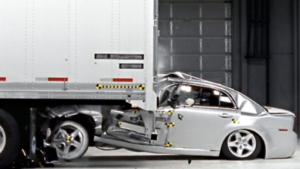What information needs to be exchanged after an auto accident?
The course of a typical day can be shattered by an auto accident. Whether you were on your way to work or simply running errands, the shocking impact of being struck by another vehicle can ruin your day, month, and even year. But it does happen, and when an accident comes into your life, it is important that you know what to do.
First, the Basics
First and foremost, please be careful about what you say after being struck by another car. Even an innocent “I’m sorry” may be used against you in court to try to prove that you were at fault. In addition, unless you need emergency care and are not able to do so, you should always take the following steps:
- Check yourself and your passengers for injuries
- Move vehicles out of traffic (if the damage is minor) and turn on hazard lights
- Call 911
- Wait for help
- Exchange Information
- Document the accident and get a police report and witness information
- Notify your insurance and start the claims process.
In this article, we are going to focus on step number five because it is extremely important that you know your obligations here. You need to know what information you should gather in order to accurately file a claim or, if necessary, file a lawsuit against the other driver’s insurance company.
Always Call 911
It is important to officially document the accident through a police report. There are several reasons for this:
- Your insurance company may require a police report in order to file a claim.
- The police will obtain and record the other driver’s insurance information.
- The police will gather and record the other driver’s contact information for you.
- The police will create an accident report with the details of the accident.
- The accident report is an official record that documents the accident. This stops the at-fault driver from claiming that “it never happened.”
Information to Exchange after an Auto Accident
As long as you are physically able to do so, below is a list of the information that you’ll need to exchange with the other driver.
Get the other driver’s full name and contact information. Get the driver’s phone number and email address; then, you’ll want to get the driver’s name and address from their driver’s license (as opposed to simply asking for it). In fact, take a picture of the license, if possible, so that you are sure that you have the correct information. Something that people can forget is to verify with the driver that the address on the license is accurate and current.
Get all of the passengers’ names and contact information. This goes not only for your passengers, but the passengers of the other vehicle.
Record the other driver’s license number and plate number. While getting the other driver’s contact information from his or her license, also record the driver’s license number. (If you took a photo of the license, that would obviously include this information.) In addition, write down the tag number for the other driver’s car.
Note the other driver’s car information. You will want to record the type, make, and model of the other vehicle.
Record the details of the location. Note the details of the location and include things like cross-streets or other relevant information – like the location and details of nearby road construction, for instance. It is also important to note the weather conditions in as much detail as you can, especially if it was raining or foggy when the accident occurred.
Why Do I Need Insurance Information from the Other Driver?
All too often, if the other driver was clearly at fault and the crash looks to be nothing more than a fender bender, the other driver will try to talk you out of getting their insurance information and offer to pay for your repairs out of their own pocket. The other driver may offer this because they don’t want to get an increase in their car insurance premiums or because they don’t have insurance at all. According to Washington state law, driving without insurance can result in a heavy fine and possible suspension of their license – so it provides ample motivation for them to ask you to keep it “under the table.” In any case, there are many reasons that you should never agree to handle the accident without exchanging insurance information. Here is a typical cautionary tale:
You are in what looks like a fender bender and it is clearly the other driver’s fault. The other driver offers to pay for your damage out of his pocket in order to “keep the insurance companies out of it.” So they give you their contact information and tell you to “send them the bill.” However, when you get to the auto repair shop, the estimate to fix the damage is way more than expected. Now the other driver, who thought the damages would only be a few hundred dollars, is looking at a bill in the thousands.
In addition, you notice that you’ve started feeling pain in your neck and back. You go to your doctor and he informs you that you have soft tissue damage from the accident and that you are going to need extensive treatment and therapy. Now you’re on the hook for possibly tens of thousands of dollars in damages from an accident that wasn’t your fault. Of course, when you try to contact the other driver for payment, your phone calls are ignored and you eventually have to file a lawsuit against the other driver.
Options If You Did Not Get the Other Driver’s Insurance Information
If for any reason, you did not get the other driver’s insurance information, you do have some options, but they are more complicated than simply filing a claim through your insurance.
You could use your uninsured motorist coverage. Uninsured motorist coverage is not required by Washington law, but it is an excellent thing to have because it protects you when you are hit by an uninsured or underinsured driver. If you carry this insurance and are hit by a driver without adequate (or any) coverage, your insurance will pay your bills up to your policy limits. If you neglect to purchase this coverage, then you would be left to pay for your medical and property damage yourself.
You could file a lawsuit. You could go through the trouble and expense of filing a lawsuit in small claims court if the dollar value of the damages is not terribly high. But if your damages are extensive, then you’d need an attorney to help track down the other driver’s insurance company and file a claim against them and/or their insurer.
When you get into a collision with another vehicle, you can’t count on the other driver to be nice. He or she has interests of their own to protect. You could use counsel from people who have driven this road before. Contact us today to schedule a consultation.



